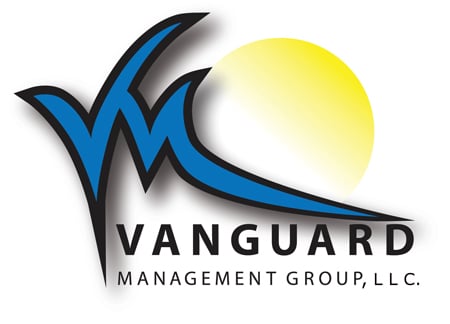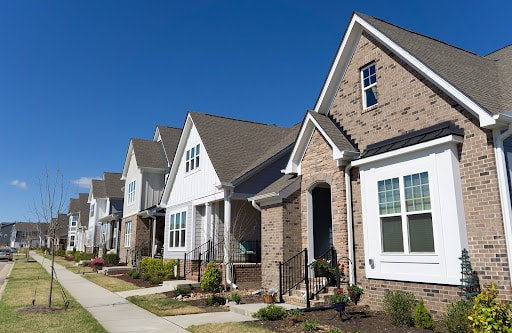

The HOA bylaws are an important governing document that guides how the community operates. However, many people don’t understand why they’re important when the CC&Rs already exist. What are HOA bylaws, and what purpose do they serve? Let’s find out.
Homeowners association bylaws are a part of the governing documents that indicate how the HOA should run. They govern the community’s day-to-day operations and mainly revolve around the board of directors. The bylaws also include a set of rules the HOA must follow.
The HOA bylaws will typically outline and regulate the board members’ authority. They also indicate how the board will affect the residents and establish how they interact. Moreover, the bylaws provide the board's procedures to conduct certain operations.
HOA bylaws are crucial because they provide structure to the community. With them, the HOA will have a clear system for leading its association. Board members and homeowners won’t be able to communicate. It might also be difficult to keep the board accountable.
Yes, the HOA bylaws are enforceable and legally binding. They might only sometimes be filed with the secretary of state. Nonetheless, the homeowners and board members are legally obligated to follow them.
However, there is a hierarchy of authority. Federal and state laws take precedence over an HOA’s governing documents. Afterward, the articles of incorporation and covenants, conditions, and restrictions (CC&Rs) follow. The bylaws only come after the CC&Rs.
The developer makes an HOA’s bylaws after the community’s development is finished. The developer creates the HOA by drafting its Articles of Incorporation and submits these documents to the secretary of state.
The articles of incorporation establish the HOA as a non-profit corporation. Subsequently, the developer must draft the bylaws and appoint a board. The board will be responsible for enforcing and following the HOA bylaws.
Changing HOA bylaws is possible through amendment. This process is often time-consuming and takes 2-4 weeks to complete. Moreover, it may cost money as the HOA might need to pay attorney’s fees.
The process will differ from community to community. This is because the bylaws usually outline the HOA’s amendment process. However, most procedures require a majority vote from the homeowners. Thus, the board cannot arbitrarily change or amend the bylaws.
It might be confusing to understand what the bylaws are just going by their definition. Hence, showcasing a few standard HOA bylaws may be best to help you grasp what they are. Here are what HOA bylaws often need to include.
The bylaws will often include the HOA’s official details. These include the association’s official name, location, fiscal year when it was first established, and a purpose statement regarding the bylaws. Moreover, the first few sections will indicate the hierarchy of authority of state law and the association’s governing documents.
The bylaws will establish membership requirements after the first few sections. It will include the criteria for membership eligibility. This may include the process for becoming a member, how to stay a member, and voting powers.
The bylaws will establish the requirements for annual and special meetings. Moreover, the bylaws may indicate where meetings can be held, when they must be conducted, and how the board must notify the members. It will also establish voting requirements and the guidelines for meeting quorum.
The HOA bylaws will establish the board’s power and obligations. This can include how they can enforce the CC&Rs when they can suspend voting rights, and how to impose penalties. The bylaws may also indicate the HOA’s maintenance responsibilities, record-keeping policies, and notification procedures.
In addition, this section may include how board members can be removed and what to do when they resign. The bylaws may also include the voting structure within the board.
Many bylaws will have provisions regarding board meetings. This establishes how the board meets, when they can meet, and how many members constitute a quorum. Furthermore, the bylaws often establish the board's actions in an official meeting.
Some board members will have specific roles. These usually include the board president, secretary, and treasurer. Board members with roles are called officers. The bylaws will usually outline the duties of these officers. Moreover, it often contains guidelines for officer elections.
State law often requires HOA bylaws to include amendment procedures. For example, the North Carolina Planned Community Act states that an association’s bylaws shall provide for the method of amending the bylaws.
Nonetheless, even without a legal requirement, the bylaws should include amendment procedures. Moreover, it should include the grounds for amendment and the voting requirements. These provisions allow the HOA to stay updated and evolve as its needs change.
HOA bylaws may also include provisions that state what happens when someone violates the bylaws. This establishes how the board can enforce the bylaws and what penalties violators face.
Many homeowners will need clarification on the HOA covenants and bylaws. But, these two governing documents are distinct from one another. While the bylaws indicate the HOA’s operational guidelines, the CC&Rs typically outline the community’s guidelines. In essence, they contain the rules of a planned community.
The CC&Rs govern what homeowners can and can’t do with their homes. Moreover, they outline the homeowners’ obligations to the HOA and vice versa. Likewise, they are also enforceable and legally binding. However, unlike the bylaws, the CC&Rs must be filed with the secretary of state. Typical provisions within the CC&Rs include:
The bylaws are part of the community’s governing documents. Thus, homeowners should receive a copy when they close their home purchase. It may also be included in a welcome packet given by the HOA.
If the homeowners lose their copy, they can also request a copy from the HOA board. Associations must keep a copy of the governing documents on file to help homeowners obtain new copies. Some may even upload the bylaws to their community website for easy access.
Lastly, community members may request a copy from the secretary of state. Even though bylaws are not required to be part of public records, many HOAs file them anyway. Thus, homeowners may obtain a copy from the secretary of state’s office.
When homeowners violate the bylaws, they’re faced with several enforcement actions. They can be fined, suspended from using certain amenities, or have a lien placed on their home. However, what if the HOA board violated the bylaws? Is there a way to keep them accountable?
In this case, the homeowners can raise the issue with the HOA board. They can also call a special meeting to discuss concerns and remove the violating board members. At times, homeowners may even take legal action against the HOA.
The HOA bylaws are an important part of the governing documents. They ensure the board has proper operational guidelines to follow. The HOA members and the board must understand and review their bylaws to ensure compliance and keep the community organized.
Is your community struggling to implement the bylaws or follow its provisions? Vanguard Management Group’s professional management services can help. Call us now at 813-930-8036 or contact us online for more details!
